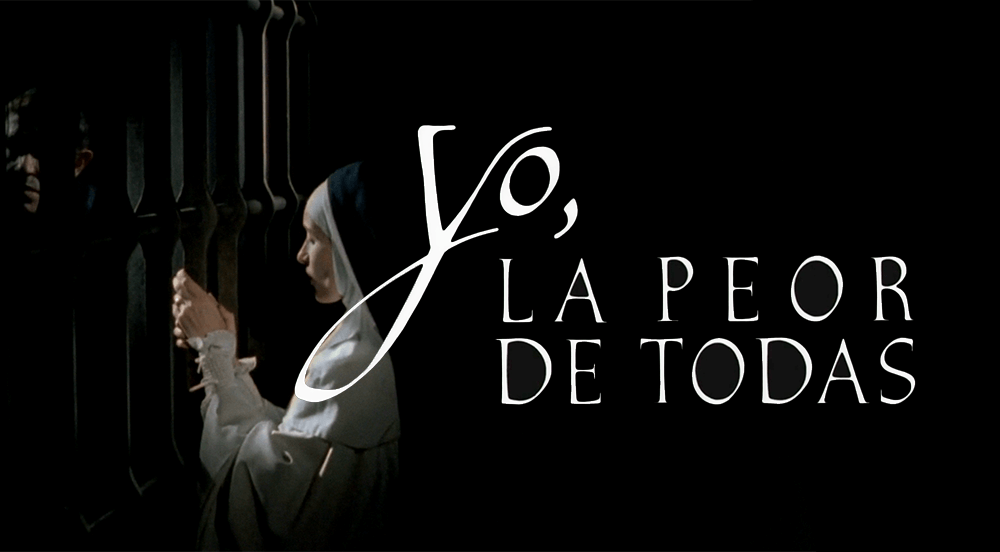
I, THE WORST OF ALL
(YO, LA PEOR DE TODAS)
dir. María Luisa Bemberg, 1990
105 mins. Argentina.
In Spanish with English subtitles.
SATURDAY, APRIL 2 – 7:30PM
WEDNESDAY, APRIL 6 – 7:30PM
FRIDAY, APRIL 15 – 10PM
WEDNESDAY, APRIL 27 – 10PM
SATURDAY, APRIL 30 – 11:59PM
“I do no penance in order to reach Heaven. I am not very pious either. But I am here, doing the only work I can offer to God, without shame: my poetry.”
After the COVID-19 forced Spectacle to close last December, we’re honored to reprise our run of this lesbians of-the-cloth classic by Argentine filmmaker Maria Luisa Bemberg – another Latin American filmmaker whose renown in cinema culture is nowhere near where it should be.
Adapted from Octavio Paz’s The Traps of Faith, I, THE WORST OF ALL stars Assumpta Serna as Sister Juana Inés de la Cruz, a real-life nun in 17th century Mexico who, having been a poet, a playwright, a philosopher and a composer, is still widely considered the most prolific author of the colonial era. Bemberg’s film details Sister Juana’s persecution at the hands of the Archbishop of Mexico (Lautaro Murua), using the Spanish Inquisition as a lens by which too indict more contemporary misogyny and homophobia within Latin America.
Bemberg’s final work was misrepresented by distributors at the time of its release; vintage VHS packaging quotes the Boston Globe as follows: “Lesbian passion SEETHING behind convent walls… Engrossing, Enriching & Elegant!” Nevertheless, I, THE WORST OF ALL was Argentina’s official submission for the Best Foreign Language Film of 1991. Ripe for rediscovery, it is a lovingly detailed and introspective historical drama that rewards patient viewing in its analysis of against-the-wall feminism.
“A biopic that apprehends there is no unriddling how genius is made, only observing with delight a mind that receives all of the world’s pleasures and pains through the screen of an animating knowledge. to write is a fervid, inexplicable compulsion that need find its outlet and languishes without” – Film critic Kit Duckworth
“An erotically charged, impassioned work. Assumpta Serna is luminous!” – The Village Voice
“Charged with an ambiguity and an irony that is electrifying… Bristles with a spirit of feminism and has us pondering its inescapable implications for the Roman Catholic Church today: what of the status of its women, of freedom of expression and intellectual pursuit?” – Los Angeles Times
